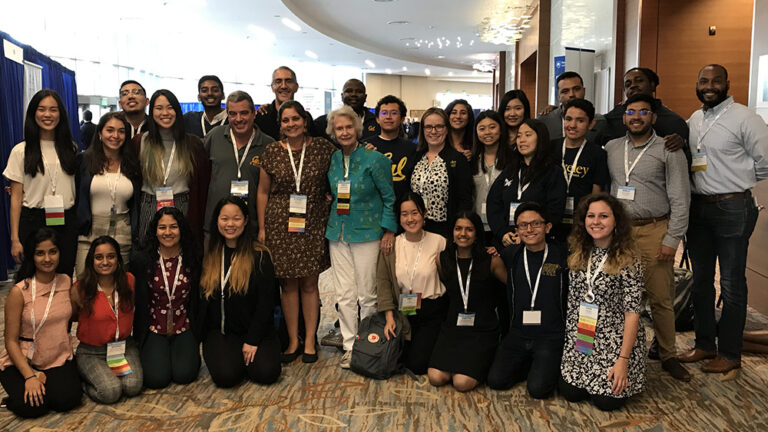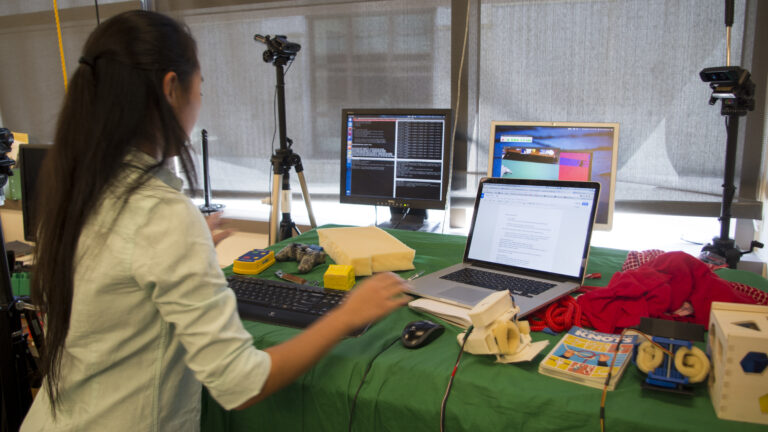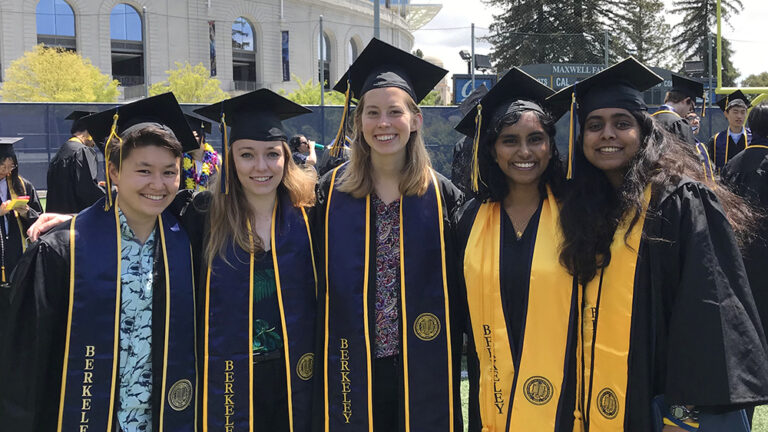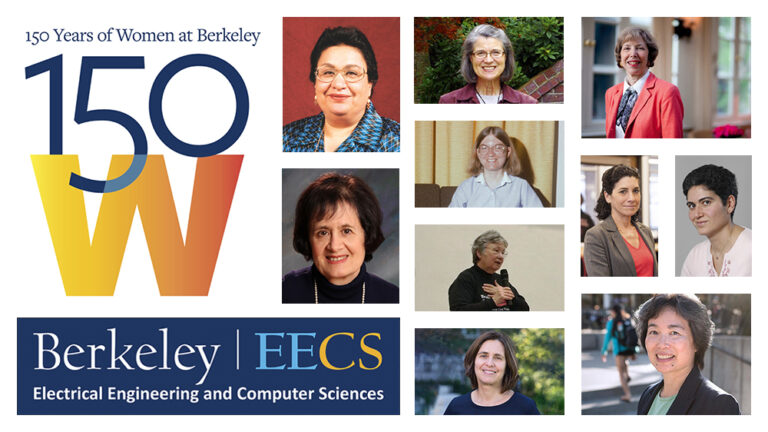
Commitment to Diversity
EECS recognizes that a diverse student body is vital to producing future leaders, creating innovative technologies, and serving society. Our faculty and students collaborate on a range of programs, from undergraduate and graduate outreach to academic support and pre-professional advancement. In November 2019, the Hopper-Dean Foundation awarded the EECS Department $2 million to support computer science diversity initiatives.
Outreach and Retention
Creative technologies and an enhanced academic experience for our current and future students arise from exposure to a diverse array of perspectives. We have a dedicated budget to support programs and initiatives that foster diversity and inclusion in our department. In order for us to meet our mission we emphasize an inclusive environment that respects all individuals regardless of race, ethnicity, gender, age, religion, language, abilities/disabilities, sexual orientation, identity, socioeconomic status, and country of origin. The EECS Director for Student Diversity, Audrey Sillers, and the Assistant Director for Student Diversity, Tiffany Grimsley, work closely with staff in the EECS Center for Student Affairs (CSA). Professors Rikky Muller and Armando Fox serve as our Graduate Diversity Officers, and Professors Narges Norouzi and Boubacar Kanté serve as our Undergraduate Diversity Officers.

Undergraduate Diversity
EECS sponsors a number of undergraduate research and support programs geared to underrepresented groups. Our two affiliated colleges also offer special graduate recruitment programs.

K-12 Outreach
Our faculty and students collaborate on a range of activities to engage with students from kindergarten through high school.

A Message to Prospective Women Students
Messages from some of our women faculty and students, and some resources available to support women in EE and CS.
Peer Support Groups for Undergraduates
Berkeley campus support organizations created by and for undergraduate students:
- Association of Women in EE & CS (AWE)
A supportive community that exposes women students to opportunities in industry and research - Black Engineering and Science Students Association (BESSA)
The Berkeley student chapter of the National Society of Black Engineers - CS KickStart(CSK)
A one week introductory class in computer science designed for incoming freshman women at UC Berkeley. - Hispanic Engineers and Scientists (HES)
The Berkeley student chapter of the Society of Hispanic Professional Engineers - Society of Women Engineers (SWE)
The Berkeley student chapter of the Society of Women Engineers - Out in Science, Technology, Engineering and Mathematics (oSTEM)
The Berkeley student chapter of the national OSTEM organization.
Peer Support Groups for Graduate Students
Berkeley campus support organizations created by and for graduate students:
- Women in Computer Science and Engineering (WICSE)
A graduate women’s group in EECS that meets each Friday at noon. - Black Graduate Engineering and Science Students (BGESS)
A group founded in 1987 by Black Berkeley graduate students to build academic and social support systems for students of African Heritage. - Latino Association of Graduate Students in Engineering and Science (LAGSES)
A support group for incoming and continuing Latino/a graduate students. - Queers in Computer Science and Engineering (QICSE)
A social group that supports gay, lesbian, bisexual, transgender, intersex, questioning, or queer grad students and their allies within the EECS department by offering them opportunities to connect to each other and with the broader campus community.
Student Outreach Organizations
Berkeley campus organizations created by students to either educate the campus community about diversity issues or provide community outreach to promote diversity in the future EECS student body:
- Bias Busters
A group formed to address implicit bias issues in the EECS department. - FEM Tech
A group to promote gender diversity and inspire women from all majors, backgrounds and sexual orientations to excel in technology careers. - Pioneers in Engineering (PiE)
An outreach organization that promotes STEM education in high schools through mentorship. - ANova
An outreach organization dedicated to improving CS education for middle and high school students in under-resourced communities across the Bay Area
National Student Diversity Support Groups in Engineering

The First Women of EECS
In celebration of the anniversary of 150 Years of Women at Berkeley, the department will profile a number of remarkable women in EECS. For the first month of the year, we are highlighting ten trailblazing women who were the first to reach important milestones between 1969 and 2019. These women broke through glass ceilings on campus, in their fields, in industry, and in the world!